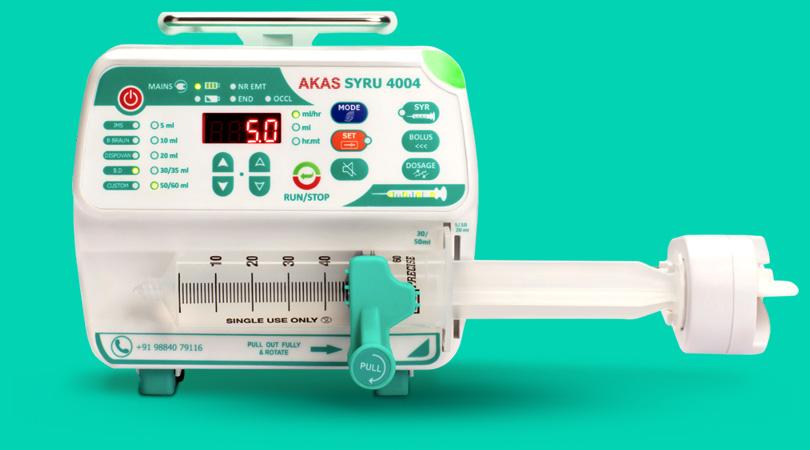Notifications

6 minutes, 30 seconds
-285 Views 0 Comments 0 Likes 0 Reviews

Syringe pumps are often associated with intensive care, where every drop of medication matters. Yet their importance goes well beyond the ICU. From neonatal wards to oncology units, syringe pumps ensure that precise, controlled drug delivery reaches every corner of patient care.
Many departments rely on this quiet yet essential technology to meet the growing complexity of treatment plans. In modern hospitals, syringe pumps have evolved into a cornerstone of safe and effective therapy management.
Syringe pumps work with high accuracy and consistency, especially in sensitive drug infusions. Their compact size, portability, and programmability make them invaluable for various departments beyond critical care.
Today, trusted syringe infusion pump suppliers play a critical role in delivering devices that adapt to broad clinical settings. Their machines are engineered to support healthcare workers while enhancing patient outcomes in all stages of care.
Here are some unexpected, yet essential uses of syringe pumps in hospital departments:
Neonatal Intensive Care Units (NICUs)
Syringe pumps are used to administer precise volumes of medication to newborns.
They handle extremely low flow rates needed for premature or low birthweight infants.
Feeding, pain relief, and electrolyte management are all made safer with syringe pumps.
Oncology Departments
Used for the continuous infusion of chemotherapy drugs in controlled doses.
Reduces side effects by maintaining steady drug plasma levels.
Enables customisation for patient-specific cancer therapy regimens.
Labour and Delivery Units
Syringe pumps assist in epidural analgesia during labour.
Safe and steady delivery of oxytocin and other hormone-based medications.
Supports both mother and newborn safety through precise dose management.
Pediatrics
Pediatric patients require weight-based dosing, making syringe pumps critical.
Offers accurate delivery of antibiotics, sedatives, and nutrition support.
Reduces medication errors during long-term treatment.
Post-Operative Care Wards
Delivers patient-controlled analgesia (PCA) for pain management.
Promotes comfort and healing with controlled doses of opioids.
Provides the flexibility to adjust pain control based on patient feedback.
Endoscopy and Radiology Suites
Syringe pumps administer contrast agents and sedatives.
Ensures consistent injection rates during imaging procedures.
Reduces risks of contrast overload and adverse reactions.
Psychiatric and Palliative Care Units
Supports continuous infusion of antipsychotic or palliative medications.
Enhances comfort for patients in chronic pain or terminal stages.
Allows for discreet, consistent care without disturbing patients.
Emergency and Trauma Units
Used for rapid yet controlled delivery of life-saving drugs.
Delivers vasopressors, inotropes, and sedatives in acute scenarios.
Offers portability for transport or bedside crisis intervention.
Reliable syringe infusion pump suppliers ensure that every hospital department is equipped with advanced drug delivery technology. With increasing demand for accuracy and patient safety, hospitals benefit from suppliers who offer:
CE-certified and ISO-compliant devices
Low maintenance and user-friendly designs
Customisable alarm settings and safety features
Battery back-up and portability
Compatibility with a range of syringes and infusion sets
By sourcing syringe pumps from trusted partners, hospitals enhance the continuity and quality of care across all departments.
Each department comes with its own challenges. Therefore, selecting the right syringe pump must be driven by specific clinical needs:
Flow Rate Accuracy – Essential in neonatal, oncology, and paediatrics.
Programmability – Needed in complex therapy plans and PCAs.
Alarm Systems – Vital in emergency, surgery, and mobile use.
Interoperability – Helpful in departments integrating EMR or central monitoring.
Ease of Use – Crucial in high-turnover environments like ER or delivery units.
These considerations guide procurement teams when choosing long-term partners among syringe infusion pump suppliers.
Mobility is another key reason syringe pumps are expanding beyond ICU walls. They are used in transport within hospitals, from emergency rooms to surgical suites, offering reliable therapy even in transit.
This makes syringe pumps not just a tool but a mobile companion to both caregiver and patient. Their presence ensures that therapy continues seamlessly without compromising safety or efficacy.
Hospitals are complex ecosystems, and every department requires the right tools to deliver effective care. Syringe pumps have become indispensable across multiple specialties, far beyond their traditional role in critical care. Their adaptability, accuracy, and ease of integration make them a vital part of modern hospital infrastructure.
The quality of these devices directly depends on the commitment and capability of syringe infusion pump suppliers. Choosing the right partner ensures that drug delivery remains consistent, safe, and tailored to the patient’s needs at every stage.
Akas Infusion manufactures world-class Drug Delivery devices like volumetric pumps, trusted by hospitals and medical institutions for reliability and innovation. By aligning with proven manufacturers, hospitals elevate patient care across every department.

